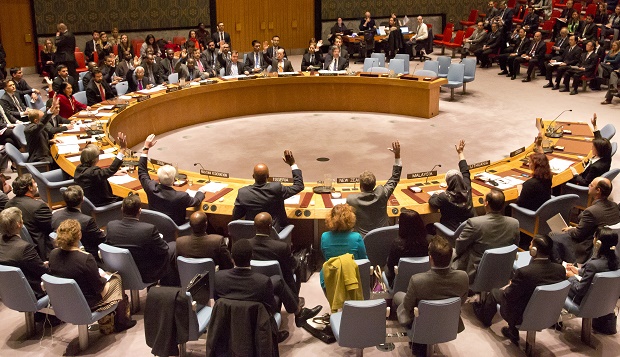Iran missile launch violated UN resolution—UN experts
UNITED NATIONS, United States—Iran violated a UN resolution in October when it test-launched a medium-range missile capable of carrying a nuclear warhead, a UN panel of experts has concluded in a report that could lead to sanctions.
READ: Iran welcomes latest report by UN nuclear watchdog
Britain, France, Germany and the United States had asked a UN Security Council sanctions committee to investigate the launch of the Emad missile on October 10, three months after the historic nuclear deal was reached.
READ: UN believes Iran worked on developing nuclear weapons
“On the basis of its analysis and findings, the panel concludes that Emad launch is a violation by Iran of paragraph 9 of Security Council resolution 1929,” said the report presented to the council last week and obtained by AFP on Tuesday.
Article continues after this advertisementREAD: US ready to move ahead with Iran deal after UN bomb report
Article continues after this advertisementAdopted in 2010, Resolution 1929 prohibits Tehran from conducting launches of ballistic missiles capable of delivering nuclear weapons.
“The panel assesses that the launch of the Emad has a range of no less than 1,000 kilometers with a payload of at least 1,000 kilograms and that Emad was a launch ‘using ballistic missile technology,'” the report said.
The experts said a rocket must be capable of delivering at least a 500 kilogram payload to a range of at least 300 kilometers to be deemed capable of firing a nuclear weapon.
Iran had denied that the missile launch was in violation of the resolution, with Foreign Minister Mohammad Javad Zarif saying that it was not designed to carry nuclear warheads.
Iran insists it has no plans to develop atomic weapons.
The finding from the panel could trigger moves to impose sanctions on Iran, although such a decision would require agreement from China and Russia.
The two countries along with Britain, France, Germany and the United States took part in successful negotiations on the landmark deal reached with Iran in July on curbing Tehran’s nuclear program.
Sanctions will remain
The UN report came as the Security Council was preparing to lift sanctions on Iran, possibly in January, once the UN nuclear watchdog, the IAEA, confirms that Tehran has delivered on its commitments under the deal.
The International Atomic Energy Agency on Tuesday closed its long-running probe of Iran’s efforts to develop nuclear weapons, removing an important obstacle to implementing the deal.
Despite progress on the nuclear track, US Ambassador Samantha Power emphasized that some sanctions will remain in place even after the international agreement is put into motion.
“We will continue to hold Iran accountable for violations of measures imposed by the council,” Power told a council meeting.
Restrictions on arms transfers to Iran and on ballistic missile technology “will remain for many years” after the nuclear deal is implemented, she said.
In Washington, a senior US administration official stressed that sanctions had already been imposed over the UN ban on ballistic missile launches but that more Iranian entities could be blacklisted.
“These entities will not be let off the hook for their involvement in Iran’s ballistic missile program,” said the official.
France emphasized the importance of an “appropriate response” after the UN report’s findings and Britain’s envoy Matthew Rycroft said the council must “respond effectively to what appears to be a breach.”
The United States is also looking at reports of a new ballistic missile test on November 24.
